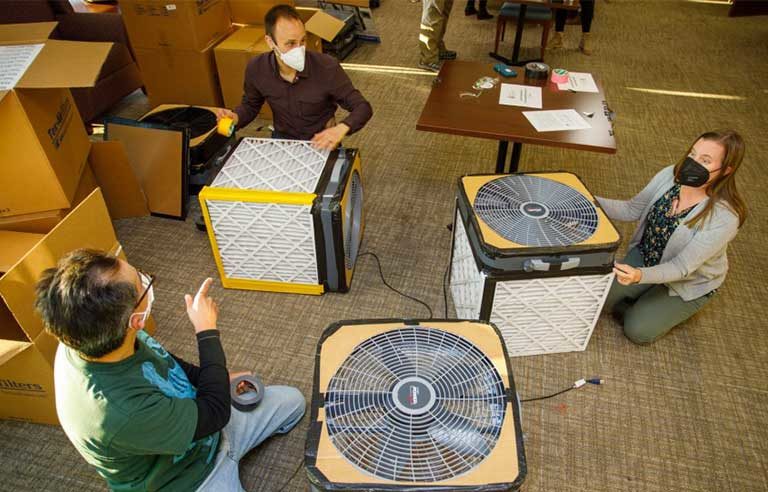DIY air filter effectively filters out indoor air pollutants: study

Providence, RI — Use of an “easy to construct” DIY air filter can protect building occupants against illness caused not only by viruses but also by two types of chemical pollutants, results of a recent study show.
Researchers at Brown University and the Silent Spring Institute measured the concentration of semivolatile organic compounds in 17 rooms before and after using do-it-yourself Corsi-Rosenthal boxes. Developed in response to the COVID-19 pandemic, the boxes are made of four filters with a minimum efficiency reporting value of 13, duct tape, a 20-inch box fan and a cardboard box.
Results show the boxes reduced the concentrations of per- and polyfluoroalkyl substances, or PFAS – also known as “forever chemicals” because they break down slowly over time – by 40%-60% and phthalates by 30%-60%. Phthalates are a group of hormone-disrupting chemicals commonly found in building materials and personal care products. They’ve been linked to several health problems.
“This type of highly accessible public health intervention can empower community groups to take steps to improve their air quality and therefore, their health,” lead study author Joseph Braun, an associate professor of epidemiology at Brown, said in a press release.
| Sign up for Safety+Health's free monthly email newsletters and get the news that's important to you. |
Added study co-author Robin Dodson, a research scientist at the institute: “The reduction of PFAS and phthalate levels is a wonderful co-benefit to the Corsi-Rosenthal boxes. These boxes are accessible, easy to make and relatively inexpensive, and they’re currently being used in universities and homes across the country.”
The study was published online in the journal Environmental Science & Technology.
Post a comment to this article
Safety+Health welcomes comments that promote respectful dialogue. Please stay on topic. Comments that contain personal attacks, profanity or abusive language – or those aggressively promoting products or services – will be removed. We reserve the right to determine which comments violate our comment policy. (Anonymous comments are welcome; merely skip the “name” field in the comment box. An email address is required but will not be included with your comment.)

